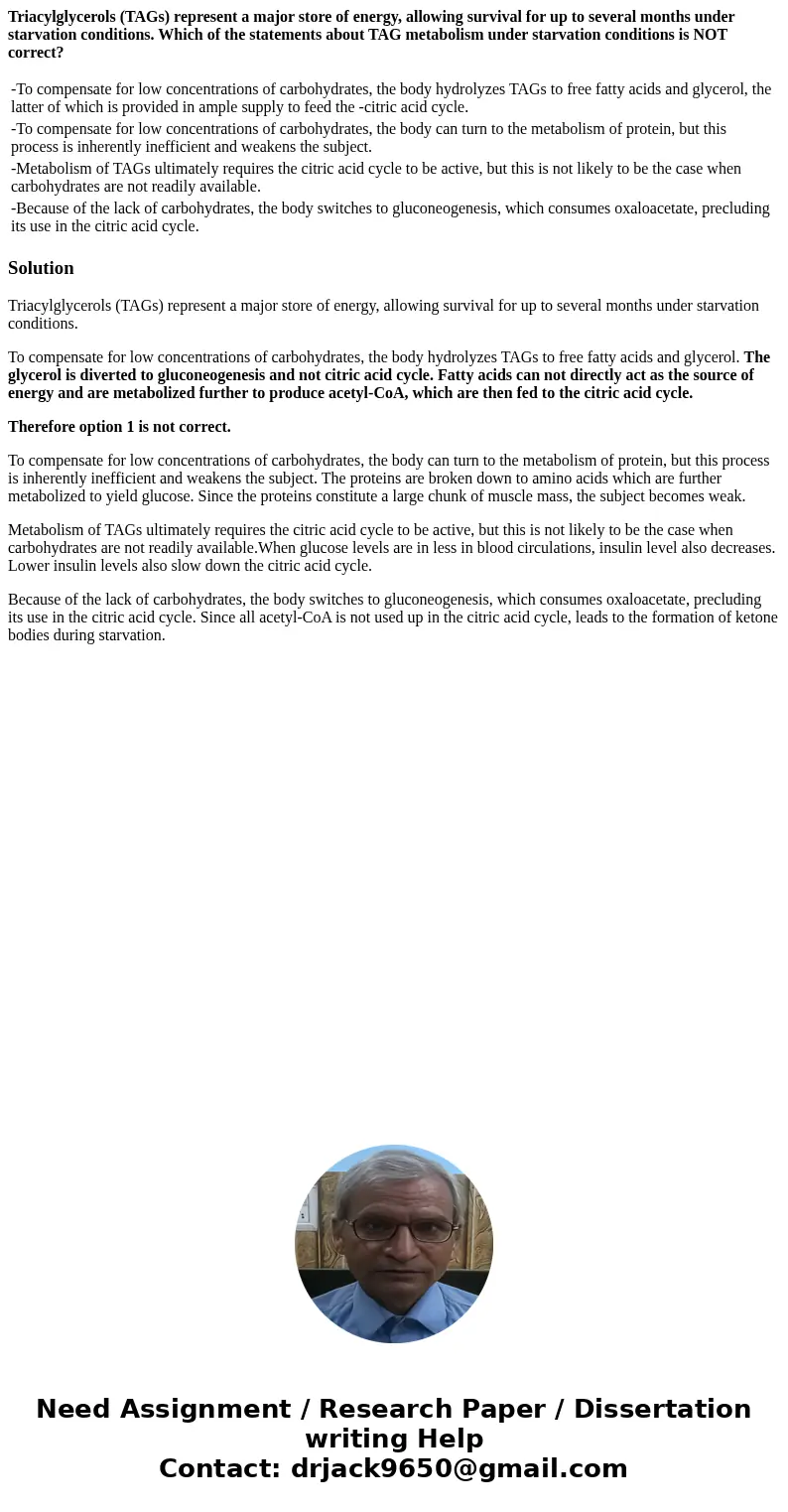Triacylglycerols TAGs represent a major store of energy allo
Triacylglycerols (TAGs) represent a major store of energy, allowing survival for up to several months under starvation conditions. Which of the statements about TAG metabolism under starvation conditions is NOT correct?
| -To compensate for low concentrations of carbohydrates, the body hydrolyzes TAGs to free fatty acids and glycerol, the latter of which is provided in ample supply to feed the -citric acid cycle. |
| -To compensate for low concentrations of carbohydrates, the body can turn to the metabolism of protein, but this process is inherently inefficient and weakens the subject. |
| -Metabolism of TAGs ultimately requires the citric acid cycle to be active, but this is not likely to be the case when carbohydrates are not readily available. |
| -Because of the lack of carbohydrates, the body switches to gluconeogenesis, which consumes oxaloacetate, precluding its use in the citric acid cycle. |
Solution
Triacylglycerols (TAGs) represent a major store of energy, allowing survival for up to several months under starvation conditions.
To compensate for low concentrations of carbohydrates, the body hydrolyzes TAGs to free fatty acids and glycerol. The glycerol is diverted to gluconeogenesis and not citric acid cycle. Fatty acids can not directly act as the source of energy and are metabolized further to produce acetyl-CoA, which are then fed to the citric acid cycle.
Therefore option 1 is not correct.
To compensate for low concentrations of carbohydrates, the body can turn to the metabolism of protein, but this process is inherently inefficient and weakens the subject. The proteins are broken down to amino acids which are further metabolized to yield glucose. Since the proteins constitute a large chunk of muscle mass, the subject becomes weak.
Metabolism of TAGs ultimately requires the citric acid cycle to be active, but this is not likely to be the case when carbohydrates are not readily available.When glucose levels are in less in blood circulations, insulin level also decreases. Lower insulin levels also slow down the citric acid cycle.
Because of the lack of carbohydrates, the body switches to gluconeogenesis, which consumes oxaloacetate, precluding its use in the citric acid cycle. Since all acetyl-CoA is not used up in the citric acid cycle, leads to the formation of ketone bodies during starvation.

 Homework Sourse
Homework Sourse